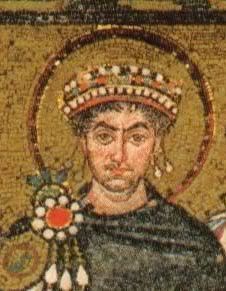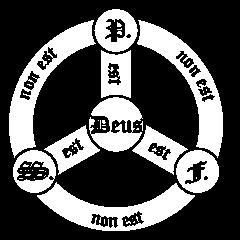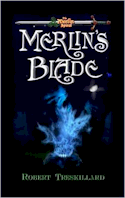|
|
Post by twyrch on Aug 20, 2007 7:21:41 GMT -5
Just another thought for you all to mull over... the Great Commission sent Christians out into the world to witness to others. It seems that today, people only consider someone a missionary if they go to another country or become an evangelist... what about those who reach out to the "outcasts" of society? Being a druid is a mission field... through my words and my actions, I can bring healing, hope and understanding to those who have been mistreated by Christians in the past and turned away from God because of Christians. I'm not the only one who does this, either. This is a post one of my friends made about how he merges Christianity with Druidry. Just some food for thought as you consider the Cele De and the way SRL depicts them in his stories.  |
|
|
|
Post by dinadan on Sept 7, 2007 9:11:13 GMT -5
Just some thoughts from my perspective on this. The Cele De, I think, were Hesychasts. ( orthodoxwiki.org/Hesychasm). Hesychastic prayer might, in outward form, appear to be similar to oriental meditation (yogic, buddhist, zen, etc), but is, in reality, a concentration on the personhood of God, which attempts to quiet the mental cacophony and contemplate God. This monastic tradition comes from the words of St. Paul to "pray without ceasing." As far as modern practice goes...I have to say I disagree with twyrch on a few things, but still, I respect his opinions. I'm not sure that I think any "spiritual path" outside of the church can be validated. That being said, "imagination" has no place in deep noetic prayer. Imagination is a function of the psyche, the mind (conscious or subconscious, makes no difference). The idea is to get out of that, and to restore communion with God through the nous, the heart-mind, the deep self. The Ladder of Divine Ascent or any of the works of Pseudo-Dionysius would be useful to look at if you are interested in such things. I should also warn you, however, that many of the things in these works are not for casual reading, and were originally written for the very spiritually advanced (in fact, the Ladder was written as instruction to monks). the Chapters of the Ladder (also called the "steps" or "rungs") are: |
|
|
|
Post by DanTheMan on Sept 7, 2007 13:03:36 GMT -5
I would agree with Dinadan on the point of restoring, or focusing on, communication and communion with God. I don't know about the other stuff Dinadan mentions about ladder and so forth, but I don't think we need to make our relationship with God complicated. We don't impress God with our intellect. We impress Him with our serving, our worship, our humbleness, our love. On meditation, again, I think it is good to think about God and His wonderful attributes and the wonderful things He does. It's good to examine oneself to see if there is anything which might hinder our relationship with God.
I just don't think we need rules and methods outside of the Bible. Make it simple. Love God, first, then love your neighbor.
|
|
|
|
Post by dinadan on Sept 7, 2007 18:07:54 GMT -5
No true monk would ever try to impress God--in fact, that would be a prime marker for someone who is in a state of spiritual delusion.
The ladder isn't meant as an intellectual endeavor--it is primarily an experiential one. We differ, I think, on the fact that you believe that its just "me, my Bible, and God," whereas I believe that the Bible is but one part of a living tradition of the Church that stretches back the day of Pentecost and has never stopped existing. But the tradition clearly holds to the fact that it is only though humility, and deep repentance (in the Greek, metanoia, a complete change of heart/mind), that we can approach God. It is a matter of experiencing God as he is, not imagining his action, or his love...but really, truly experiencing it.
To me, this is what the Cele De were about...and it's a tradition that goes back to the earliest antiquity in Christianity, not outside of it. That is not to say that I don't believe that the first Cele De were former Druids--because I do. But they were former Druids, first and foremost. The Church may have sanctified many practices of their former path, but there is no evidence whatsoever that they retained their identities as "druids." SRL may be a little irresponsible by purporting them as such (but I think the fact that Hafgan disbands the college after Merlin is meant as much, much more).
Frankly, as someone who has tried to live with a foot in both worlds--I can honestly say that all it does is tear you apart inside. A man cannot serve two masters, and I don't believe it is possible to follow spiritual paths outside the church and remain in the church. I'm sorry, I'm not saying this is absolutely true, I'm saying this is what I believe to be true--and I don't want to hurt anyone's feelings on this matter.
The object, though, is not to debate druidism as it exists today, but to talk about the Cele De, which, I think, is more exciting to talk about anyway.
|
|
|
|
Post by Treskillard on Feb 5, 2008 9:29:09 GMT -5
Twrch,
Thanks for sharing. I cannot begin to understand the difficulty you have been through in the last year or so.
I think a lot of the problems that Christians have with meditation is that the term is equated with Eastern religions where the goal is to "lose yourself". By that I mean to lose your personality and merge with creation/god. The basis is pantheism. In their view, God is not personal therefore the goal of meditation is become one with this non-personal god, and the only way to do that is to lose your individuality.
Christians rightly should avoid this, but I think you are advocating something different, it sounds like. We are called to meditate in the Bible, but to do so actively in the sense that our mind, soul, and spirit are engaged. Our personality/individuality is not lost, but rather it is enhanced as we encounter God who is "wholly and holy other". Only when we understand how amazingly glorious God is can we see ourselves and our problems in a proper light.
As well as some of the others, I am concerned about the spirit/animal guides part, but there isn't a prohibition in scripture against meditating itself. In fact, in our western culture, we are so busy that we rarely get time to think. And when we're not working, then it's either the radio or the TV blaring at us, telling us how to think, what to buy, and how to act. Christians don't have "spirit guides", but we don't seem to have any problem with "radio guides" and "TV guides". Voices and images speaking to us out of nowhere. Hmmm ... seems kind of spooky. Maybe we are so close to it we don't realize what is happening.
Taking time out to focus on God, to quiet ourselves to hear his voice in the midst of the babble is a good thing. Some of the clearest direction I have gotten in my life has come to me by God speaking to my heart in these quiet moments.
Thanks, Twyrch for making me think!
-Robert
|
|
|
|
Post by ellery on Feb 19, 2008 23:46:05 GMT -5
I am sorry Twyrch. A year could not be more difficult than that. I've always associated druidism with witchcraft in our modern world but not necessarily in the ancient world. Maybe that's because the Wiccans (a religion) associate themselves with druidic (a non-religion) practices; whereas, druids do not necessarily associate themselves with Wiccans? I mean no offense. I am very ignorant about both Wiccans and Druids. ********************** Da5id - Sorry, I don't know where Lawhead is coming from since I haven't read those books. I've read 3/5 of the Pendragon cycle, all the Albion books, and just started Byzantium. I hope this post sheds some light on the the general, historical predicament facing the spread of Christianity though. I would like to point out two challenges of Christianity that trouble most people, both now and historically. Bear with me - I am going somewhere with this. 1) The difference between disagreeing with other religous beliefs versus disparaging other cultures and individuals. Most religions are mostly true, but all of them differ at critical, defining points. Missionaries inevitably have a sense of 'superiority' woven into their sense of 'rightness' about doctrine. At least Christians acknowledge their own self-pride, but it's still a fine line to walk on. 2) Christian belief in heaven and hell puts the stakes of belief at a very uncomfortable level. A related problem is that psychology has largely changed the meanings of 'reward' and 'punishment' to that of selfish motivators, rather than the Biblical sense of justice. If you consider how broken our world is, then it is easier to believe in both heaven and hell as a time of future judgement (ie, applying justice to this broken world), even if it is still an uncomfortable subject. These challenges remind me of a Norton Critical Edition on Beowulf I read a while ago. Unfortunately, most of my books are in a storage unit right now so I'm not exactly sure which edition it is. I think it was Heaney's edition. If it's not Heaney, then it's the Donaldson edition published in 1975. I read both. The book includes several essays that discuss the Christian and pagan elements in Beowulf, specifically whether the writer was a Christian or Pagan and what were his religious messages. He wrote Beowulf at a time shortly after Christianity had spread to his country. He was likely a monk since he had the ability to write. I wouldn't have realized how important a theme religion is in Beowulf, but after reading those essays it becomes clear that the writer struggled a great deal about how to deal with his heroic yet pagan ancestors, of which his story tells us. Lawhead's books take place in about the same time period as Beowulf's writer, and I suspect that the historical people of which Lawhead writes shared this same struggle: how to mesh their new religion with their pagan forbears. If there was confusion among literate monks, there had to be even more confusion among those who couldn't read. I hope I didn't stray too far from the original post. |
|
|
|
Post by barbcat on Jul 14, 2015 22:06:51 GMT -5
Dear Christian Druid,
I totally agree with you and appreciate your gentle and thoughtful answers. I have fallen away from the sweet faith I had in the Light of God for so many years, have been through a horrendous number of traumatic years just recently where things got so bad I attempted to take my life twice. It's only been through reading Stephen's books and coming to understand that the spirituality he practices and espouses, whether called the Cele De or simply living in the Light has been subtly and gently bringing me back to the radiant trust and faith I had before I lost it. It has been the only thing that has come close to healing my poor wounded spirit and body and I am devouring all of his writings and coming to know that he is truly a man of spirit of a spirituality that has been lost to modern life. It's a different sort of Christianity, eh? But doesn't it feel more numinous, luminous, more uplifting, more inclusive of all beings, human or otherwise? Stephen is in touch with something very important and I want to know more of what he knows.
As far as the Druidic or other pantheistic references within Cele De, we have to remember that the ancients had a much deeper connection to the radiant life force that flows from the Good Creator than we can ever hope to know in these frenzied times. Rituals are a way of solemnizing a vow or intention, whether it be drawing a circle in the sand or lighting a candle. None of them have any particular special power, not these days anyway, except as instilling greater meaning and solemnity and concreteness for the practitioner. As far as modern Roman Catholicism, I was brought up in the church and don't know how my faith ever remained intact in the face of such hypocrisy and chauvinism and abuse and I sure lost it before rediscovering Jesu on my own in a surprisingly lovely way. He simply became my friend who is always there for me and I don't care if He is the Lord of the Universe or simply My Lord who is my dearest friend. My friend does NOT demand or expect worship or obeisance, although I would gladly and lovingly kiss his feet and wondrously touch the hem of his robe, simply because I love Him. The titles mean nothing and who can say what's really true anyway? The Bible? I don't think so. Recall all the books ejected and the writings redacted over the centuries and how very different the Good Book would be if it were not for Constantine's seriously messing with it for the benefit of the bishops in usurping power from the unwashed masses. I don't mean to impugn the Bible, but seriously, can anyone truly believe that the Word has remained intact throughout all these centuries through all the copyings and editing and deleting? I cannot understand anyone with a clear mind thinking the the present day Bible can ever be the final word or works of God, although as a history book and a somewhat contradictory source of installing good morals, it's pretty decent. Ancient unadulterated texts recently found paint a very different picture of Christ and one I much prefer to the heavily edited one. I do not understand how Christians can ignore this intact information coming to light, do they believe it's the work of Satan? Oh c'mon!
I love the bumper sticker I once saw "Lord, save me from your followers". As far as meditation, it is simply stilling our thoughts in order to hear the still small voice of spirit. Anyone with any sense of truth and integrity will know if something dark is trying to enter, but rarely, if ever, does if the intention is purely to connect to spiritual presence and peace. Dark practitioners have their own methods of contacting whatever forms they wish to consort with, but their practices are never called 'meditation'. One is not going to be grabbed by some dark entity simply by attempting to still the mind and open to the voice of Spirit. One of the most unfortunate errors of modern fundamentalist Christianity is installing so much fear and elitism, and suspecting the Evil One is around every corner. No way to live a life lit in the Light of the Good Creator. Pardon me if I don't use the term 'God' - much too loaded. But the Good Creator - Ahhhh, that's what he is and it fills me with peace.
|
|
|
|
Post by barbcat on May 23, 2016 23:12:22 GMT -5
Hi all. This is my first post on the forum here. I've been reading Mr Lawheads books for the past few months. I really enjoyed his Pendragon Cycle and the Song of Albion cycle. However, I've just read The Iron Lance and am just beginning The Black Rood, and I'm not really sure where h'es coming from as far as Christianity is concerned. I guess I'm talking about this Cele De group. I've looked it up on the net HERE and it's a bit worrying. It says stuff like - Spiritual Guide? That sounds a little bit New Age-y to me. I don't think I'm comfortable with this kind of 'druidic' Christianity. I don't mind druid stuff so much in fiction, but I'm not really sure what kind of message Stephen is trying to send, or whether he favours this kind of Christianity. It may be confusing to some... |
|
|
|
Post by barbcat on May 23, 2016 23:48:21 GMT -5
Oh my goodness! What a bunch of party poopers. The Cele De is an actual religion you can look up in WikiPedia. It is ancient Celtic Christianity before Rome got its hands on it and there are still sects in this 'Modern Age'. I wish the Cele De were still going strong because, as a recovering Catholic, I'd join in a heartbeat. It heartens me that Stephen, as an 'Evangelical Christian' has a mystical and open-minded side that is NOT vanilla Evangelical. Spiritual Guide, soul-friend, is mentioned in SL books as a Teacher on the path to monks of all ilk.
As for 'New Age', just what are you afraid of? We love the Great Good, the One, too and meditation is not the devils tool. It's a way to hear the Still Small Voice of the Divine. I've been around the religion block, including Charismatic, and New Age embraces the whole and is universal but not bigoted (although there are some Fundamentalist 'I'm more enlightened than you' New Agers ) . It's what I finally landed on as palatable. You'd better believe that many Fundy Folks are just plain annoying and think 'New Age' is Satanic. Yikes! Open up! Sorry, but it's harmful and very limited to this New Agey Cele De gal. The Essenes were as close to 'New Age' than modern day Christianity. Good enough for Jesu, good enough for me.
Folks, there are more devotional books than just the Bible although you probably think they're heathen-ish. No insult meant but recall that over 20 books were deleted during Constantine's reign and not for the better. I suppose some Christians think the Swift Sure Hand is an insulting reference to the Good Creator. It's brought me back to Him and sustained me in a difficult time. Hey, if it's good enough for SL, it's good enough for me.
|
|













